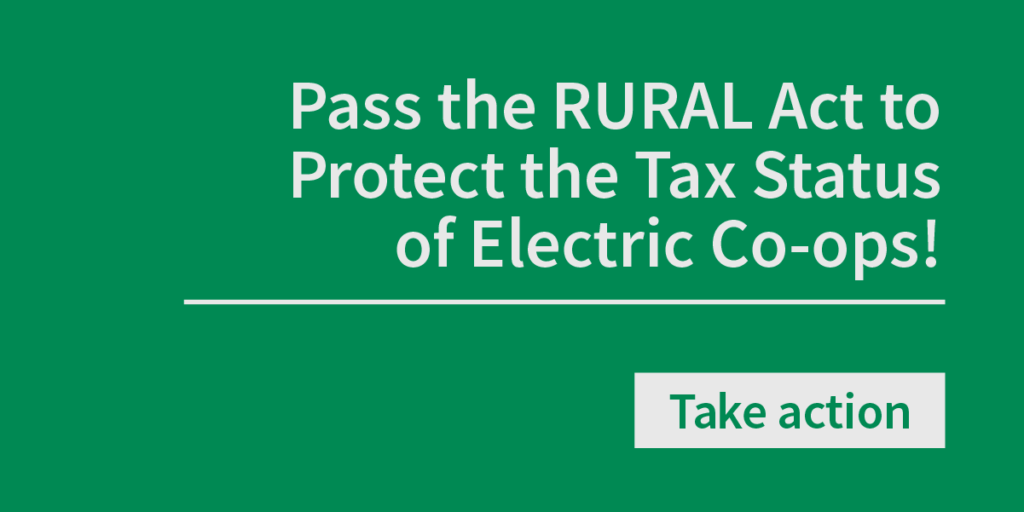
A majority of House members are now co-sponsoring the RURAL Act, increasing the prospects for passage of the bipartisan bill this year.
As of Monday, 230 lawmakers had signed on to the bill to protect electric cooperatives’ tax-exempt status. It would take a simple majority of 218 of the 435 House members to pass it once the chamber’s leaders bring it to the floor for a vote.
“We will now be working with our congressional champions to move this legislation as part of a larger tax package or must-pass legislation,” said Paul Gutierrez, NRECA’s lead lobbyist on the issue.
Congress is expected to pass legislation in November to avert a government shutdown, giving RURAL Act sponsors one possible vehicle on which to attach the bill.
“We know that the most direct way to get something like this done is to include it in a must-pass spending bill,” said Rep. Terri Sewell, D-Ala., lead sponsor of the bill along with Rep. Adrian Smith, R-Neb.
Sewell said that attracting so many co-sponsors in the House means that passing the RURAL Act “will become a no-brainer.”

The RURAL Act would allow co-ops throughout the nation to once again accept government grants for disaster relief or broadband service without risking their tax-exempt status.
Currently, co-ops face the loss of that status if they accept any kind of grant from local, state or federal governments. The dilemma grew out of a 2017 tax reform bill passed by Congress that changed the definition of “non-member revenue” to include government grants. Co-ops are barred by federal tax law from receiving more than 15% of their revenue from sources other than their members. Before the change, grants were considered capital and did not factor into co-ops’ revenue ratios.
Co-op leaders, consumer-members and NRECA lobbyists have mounted a full-scale campaign to gain support for the RURAL Act since it was introduced in Congress in April. If the House votes to pass it, the focus would move to the Senate, where the bill has so far attracted 29 bipartisan co-sponsors led by Sens. Rob Portman, R-Ohio, and Tina Smith, D-Minn.
The bill faces a tougher test in the Senate because of partisan differences. However, supporters of the RURAL Act believe that its passage in the House by a strong bipartisan majority could convince Senate leaders of both parties to take it up.
The biggest challenge for the bill’s supporters is that time is running out on the 2019 legislative calendar. There are fewer than 30 days left on the House schedule and fewer than 40 on the Senate schedule.
Read more coverage of the RURAL Act:
Co-op Voices, Part 1: How Losing Tax-Exempt Status Would Hurt Rural Residents
Co-op Voices, Part 2: CEOs Discuss Impacts of Tax Law Glitch for Members
RURAL Act: Why Popular, Bipartisan Legislation Can Face Hurdles in Congress
Q&A: RURAL Act’s Lead House Sponsors Say Co-op Voices Are Key to Bill’s Success
Q&A: Senate’s Lead RURAL Act Sponsors Discuss Their Strategy for Passage
Co-op CEO to Congress: Help Expand Rural Broadband by Passing RURAL Act
NRECA CEO Jim Matheson: ‘If We All Stand Up,’ Co-ops Can Save Tax-Exempt Status
Co-op Advocacy Needed to Move Vital Tax Fix in Congress
Bipartisan Bill Would Protect Co-ops From Losing Tax-Exempt Status
Listen to a recent podcast on the RURAL Act:
Erin Kelly is a staff writer at NRECA.